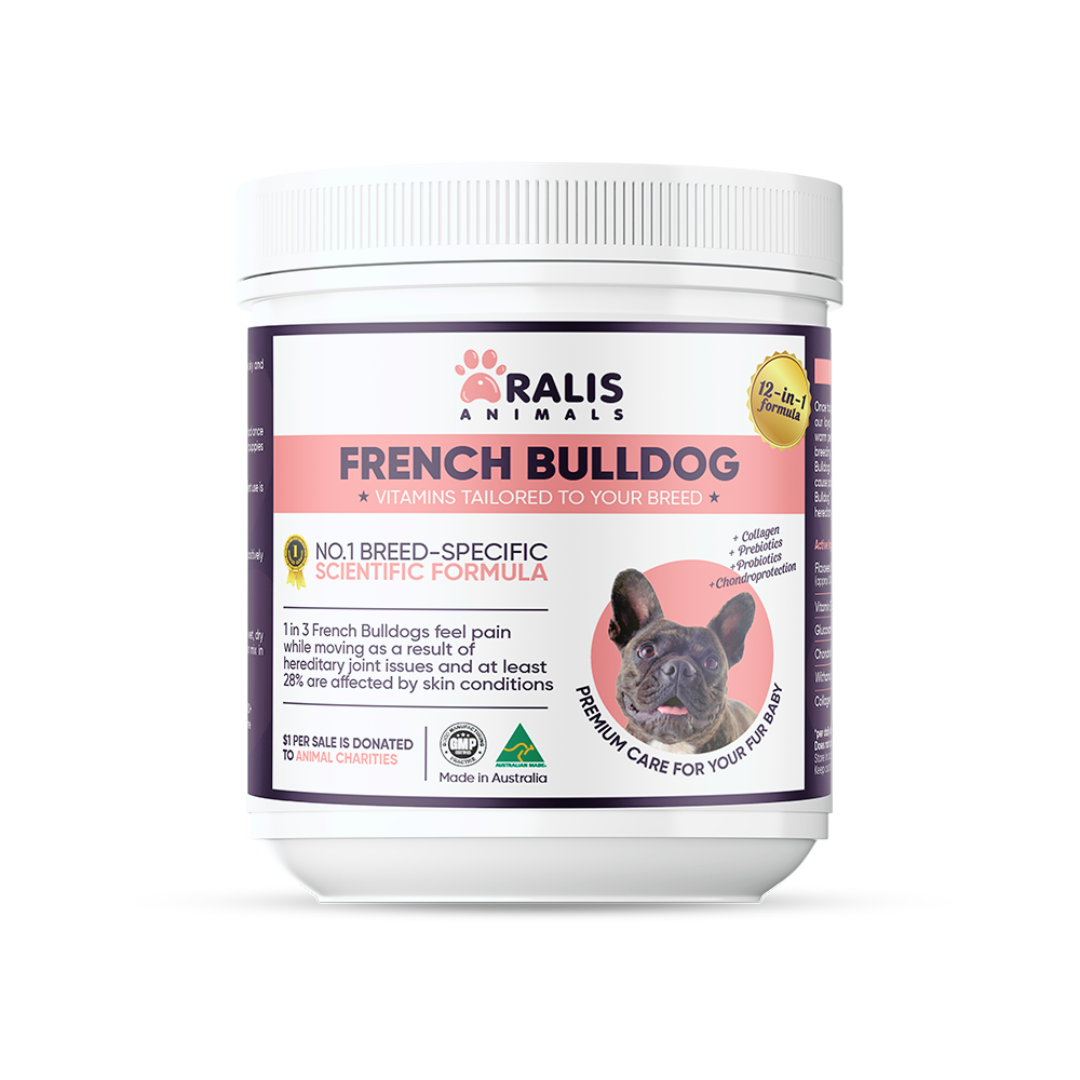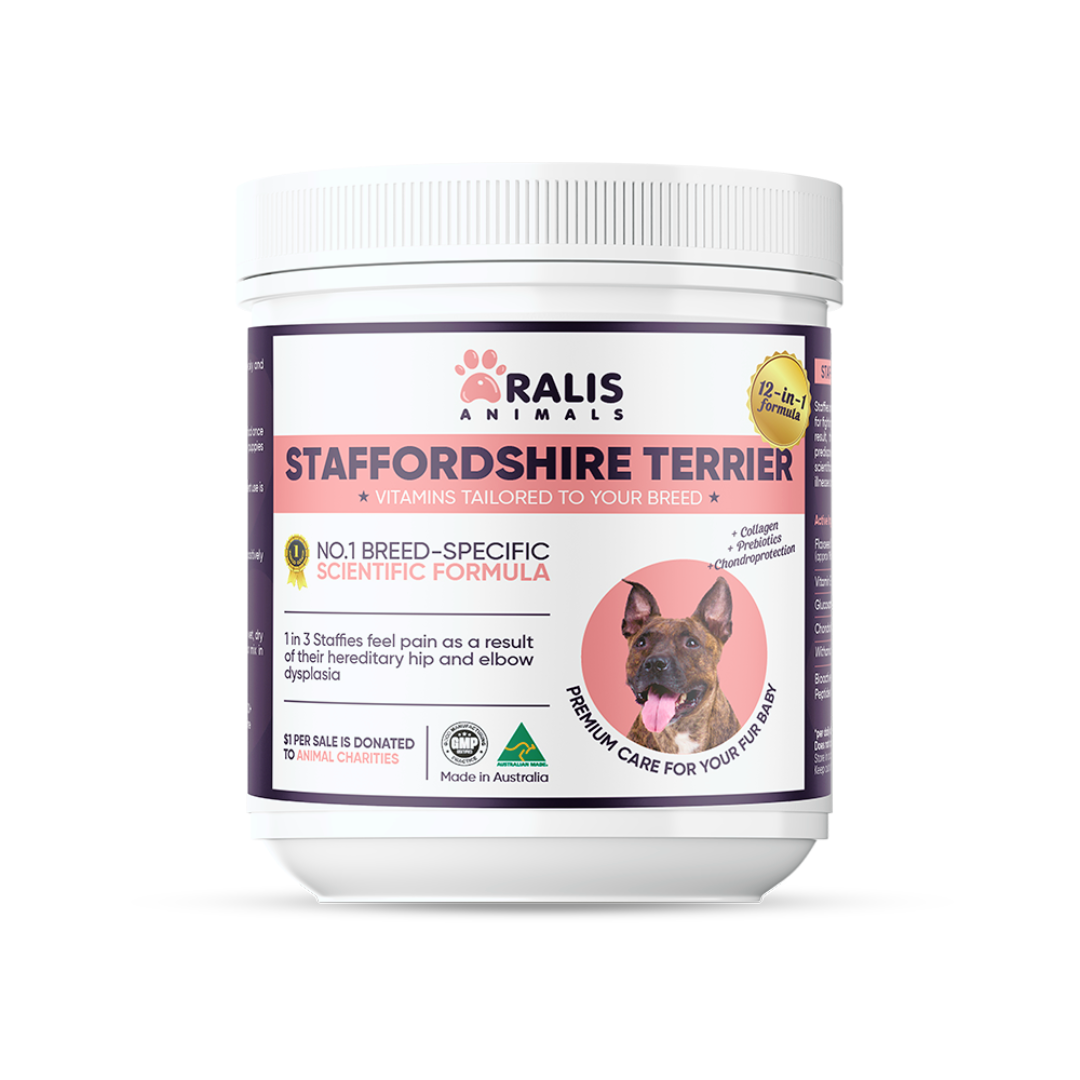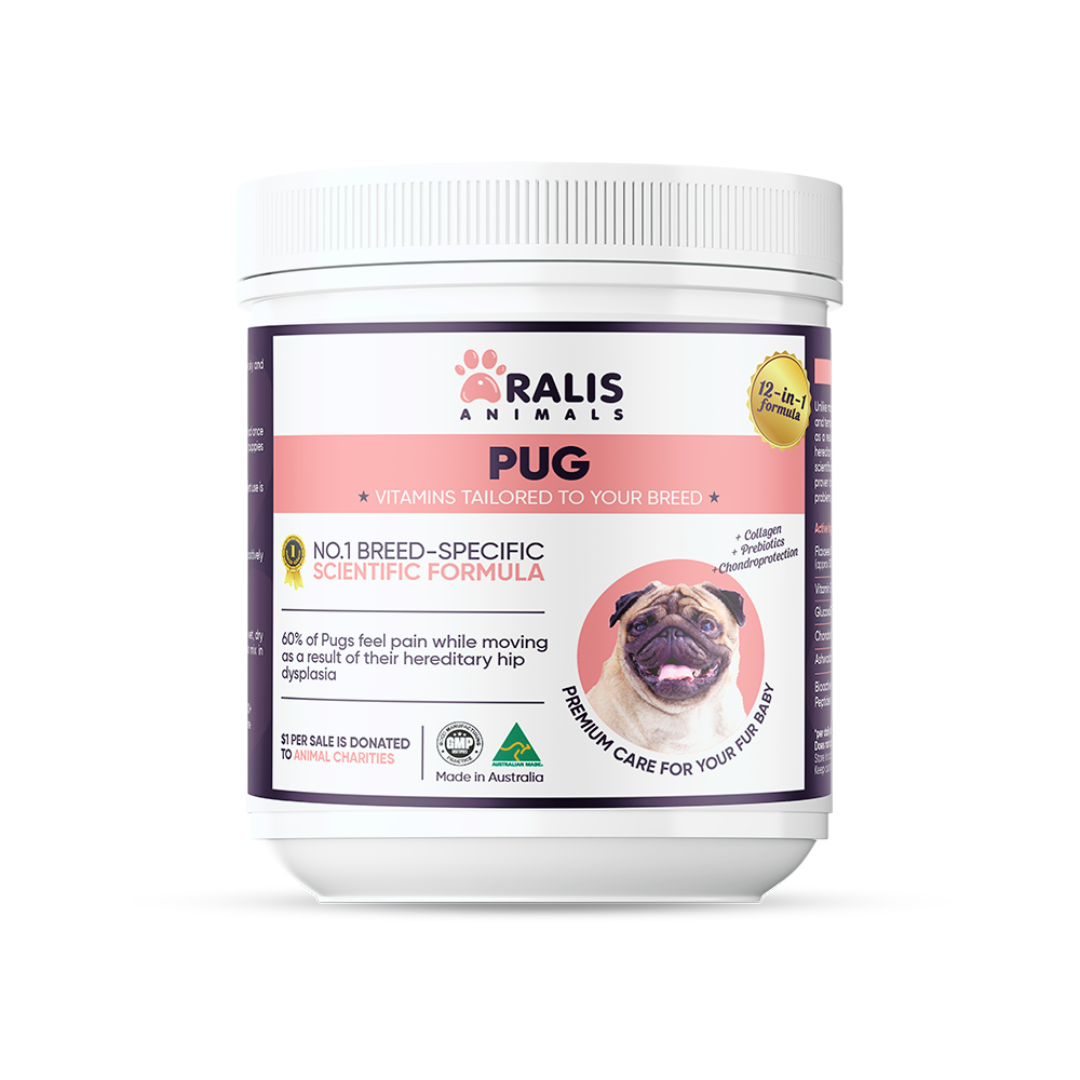The Gut-Joint Connection in Dogs: Why Probiotics Can Help With More Than Digestion

As pet owners, we're always on the lookout for ways to keep our furry companions happy and healthy. When it comes to canine wellness, much of the focus is often on maintaining a balanced diet, providing adequate exercise, and ensuring proper dental care. However, there's one aspect of dog health that is often overlooked: gut health.
The gut microbiome, the diverse community of bacteria and other microorganisms that reside in a dog's digestive system, plays a crucial role in overall well-being. Beyond its impact on digestion and nutrient absorption, the gut microbiome has been linked to a surprising array of health benefits, including joint health and mobility.
In this blog post, we'll explore the gut-joint connection in dogs and why incorporating probiotics into your pet's diet can be a game-changer for their overall well-being.
Understanding Canine Gut Health
The gut microbiome is a complex and dynamic ecosystem, home to trillions of microorganisms that work in harmony to support various bodily functions. These beneficial bacteria, along with other microbes, are responsible for breaking down food, absorbing nutrients, and even regulating the immune system.
Maintaining a healthy gut microbiome is essential for dogs, as it helps to prevent the overgrowth of harmful bacteria and supports the body's natural defenses against illness and inflammation. Probiotics, the "good" bacteria found in fermented foods and supplements, play a vital role in maintaining this delicate balance.
The Gut-Joint Inflammation Connection
While the connection between gut health and joint health may not be immediately obvious, the two are more closely linked than you might think. The key lies in the inflammatory response.
When the gut microbiome is out of balance, it can trigger an inflammatory response throughout the body. This systemic inflammation can then manifest in various ways, including joint pain and stiffness. The inflammatory compounds released during this process can directly impact the cartilage and connective tissues in a dog's joints, leading to discomfort and reduced mobility.
Conversely, a healthy gut microbiome, supported by a balanced diet and the right probiotics, can help to reduce overall inflammation in the body, including in the joints. By addressing the root cause of the problem, probiotics can provide a more holistic approach to managing joint health and mobility in dogs.
Probiotics: More Than Just Digestive Support
While probiotics are well-known for their benefits in supporting digestive health, their role in canine wellness extends far beyond the gut. Emerging research has shown that probiotics can also have a positive impact on joint health and mobility.
The anti-inflammatory properties of certain probiotic strains, such as Lactobacillus and Bifidobacterium, have been found to help reduce joint pain and stiffness in dogs. These beneficial bacteria can help to modulate the immune system, reducing the production of inflammatory compounds that contribute to joint degradation and arthritis.
Additionally, probiotics can support the production of short-chain fatty acids, which have been shown to have a protective effect on joint cartilage. By maintaining the integrity of the cartilage and reducing inflammation, probiotics can help to improve overall joint function and mobility in dogs.
Our blend combines Lactobacillus and Bifidobacterium probiotics with glucosamine, chondroitin, and omega-3 fatty acids, creating a complete gut and joint solution. Discover the benefits for your dog here.
Choosing the Right Probiotics for Dogs
When it comes to selecting the best probiotics for your dog's joint health, it's important to look for supplements that contain a diverse array of strains, including Lactobacillus and Bifidobacterium. These strains have been specifically studied for their anti-inflammatory properties and their ability to support joint function.
In addition to probiotics, you may also want to consider complementary supplements like glucosamine and chondroitin, which can help to further support joint health and mobility. These compounds work in synergy with probiotics to provide a comprehensive approach to managing canine joint issues.
Case Studies and Research
The connection between gut health and joint health in dogs is supported by a growing body of scientific research. In one study, researchers found that dogs with osteoarthritis experienced significant improvements in joint function and mobility after being supplemented with a probiotic-rich diet.
Another study, published in the Journal of the American Veterinary Medical Association, demonstrated that dogs with joint pain and inflammation showed marked improvements in their condition after receiving a probiotic supplement. The researchers attributed these positive outcomes to the anti-inflammatory effects of the probiotics.
Real-world examples further reinforce the benefits of probiotics for canine joint health. Many pet owners have reported seeing a noticeable difference in their dog's mobility and overall comfort after incorporating a high-quality probiotic supplement into their pet's routine.
Practical Recommendations
If you're interested in supporting your dog's joint health through probiotics, here are some practical tips to get you started:
- Look for a probiotic supplement specifically formulated for dogs, with a diverse array of strains and a guaranteed potency.
- Start with a low dose and gradually increase it over time, allowing your dog's gut microbiome to adjust.
- Consider pairing the probiotic supplement with other joint-supporting compounds like glucosamine and chondroitin.
- Consult with your veterinarian, especially if your dog is already experiencing joint issues or is taking other medications.
By taking a proactive approach to your dog's gut health, you can help to support their overall well-being, including their joint function and mobility. Incorporating probiotics into your pet's routine may be the key to unlocking a new level of health and happiness for your furry companion.





